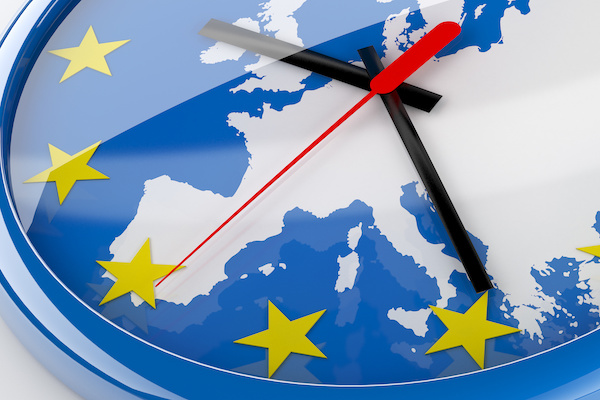17 February 2017
Initial thoughts on the Clean Energy Package


Following the Paris agreement, the European Commission aims at positioning the European Union as a leader in the energy transition thanks to the Clean Energy Package. UFE has examined carefully those proposals, now at the negotiating table between the European Parliament and the Council of the European Union. During informal dinner discussions, which took place at the European Energy Forum on Tuesday 14th in Strasbourg, UFE shared its initial thoughts on this matter, which will undoubtedly mobilise industrial partners, civil society and institutional stakeholders throughout the whole year, but will also bring structural change in the power sector once voted.
As expected, with the Clean Energy Package the European Commission is pursuing its commitment to a clean energy transition, with and for the European consumer. Through its proposals, the European Commission aims to provide consumers with a more active role in controlling and steering their own consummation, while encouraging innovation and the emergence of new services.
Some good points …
This well-intentioned framework can be welcome in several respects. Indeed, the European Commission expressed for the first time – and it has been a strong request of UFE for many years – the necessity to support the employment and skills transformation in the energy sector, as well as the economic changes for the regions impacted by the energy transition. The Commission also provides a more ‘flexible’ market environment, enhancing the participation of consumers and renewable energies on the market. Several proposals serve this purpose: “one stop administrative shop” to make RES-project submission easier, large-scale roll-out of smart meters, common set of rights for EU consumers related to information, market participation, protection against unfair business practices, or even a framework to tackle energy poverty.
… and others to be improved for greater consistency
However, if the actual goal is to provide (or keep providing!) the European consumer with clean, safe, and affordable energy, the Commission should address this new legislative package with a coordinated approach for all the major issues of the energy sector. Put simply – and it should never be underemphasised – the objectives pursued must be consistent with the existing instruments to reach them. First of all, because the main purpose of the energy transition is to tackle climate change, the ETS must be strengthened to – finally – set a sufficiently-high carbon price in order to reach at the least cost CO2 emissions reduction targets, while promoting energy efficiency actions. In this respect, the vote of the European Parliament last February 15th on the ETS mechanism is a missed opportunity to reach the EU’s climate ambition. It is therefore in the hands of the Member states push for an ambitious compromise. In this regard, the proposed framework for renewable energies and energy efficiency has to be developed taking into account the impact of such policies on the ETS mechanism, in order to avoid increasing the cost of decarbonising European economies, at the expense of the consumers.
Responsibilities must be carefully balanced
The governance of the electricity markets is also essential. Indeed, with energy markets being more integrated, the reinforcement of regional dialogue and cooperation is crucial in order to guarantee a better security of supply for the EU. The European Commission is well aware, but some proposals are surprising – not to say worrying – on several aspects. Therefore, while the creation of an EU DSO entity, associating distribution system operators to the European governance framework, is a significant progress, other aspects of the framework proposed must be substantively improved.
UFE insists on the need for a “tiered approach” along with a clear and efficient articulation between national, regional, and European levels of governance, in line with the principle of subsidiarity. Any transfer of competences from one level to the other should be justified by an in-depth cost-benefit analysis, in order to guarantee that the benefits for European consumers are higher than the implementation and transition costs. For instance, the Commission’s objectif to introduce Regional Operation Centers should by no means contradict the capacity of TSOs to ensure the stability of the system close to real time. This is all the more important in a context of transition towards a more variable and decentralised energy system, in which UFE would like to stress the key role played by transportation and distribution system operators, to ensure the stability of the electricity system at the benefit of European consumers.
Security of supply and investment capacity: two major issues
The European Parliament debate will be an opportunity to replace two major issues at the heart of the provisions for decarbonising the economy: securing EU electricity supply and achieving – under sustainable economic conditions – the investments required. In this respect, and as a positive development, the Clean Energy Package includes a legal recognition of capacity mechanisms, which are necessary to address peaks of consumption. But devil is always in the details, and the European Commission conditions the implementation of capacity mechanisms to the sole outcome of the adequacy assessment carried out by ENTSO-E, therefore at the European level. Here too, the lack of consistency is obvious: security of supply must remain under Member State responsibility. They should be able to assess the need for capacity mechanisms based both on regional adequacy assessments and on a more refined assessment, carried out at a national level.
Finally, let us not forget that the heart of the matter is economic, especially in the electricity sector. All electricity stakeholders, be they producers, services, aggregators, system operators are essential to achieve the structural transformation of the energy and electricity system at stake today. That is why all of them need strong mid- and long-term economic signals, as well as a clear and stable market framework.
Find out more
02 June 2020
“Long live Europe”: it’s time for Europe!
25 February 2020
Brexit: love last 47 years


About us
The Union of the French Electricity Industry is the trade association of the French electricity sector. We bring together companies from the whole value chain of the electricity industry.
Find out more









